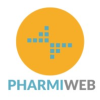Research Associate in Wastewater Surveillance
Publicerad 2024-10-07
The advertised post as research associate in Biostatistics is an exciting opportunity for a researcher with a strong statistical background and expertise of working with epidemiological data to join a multi-disciplinary team to contribute to the development and application of statistical methods for epidemiological surveillance using disparate data sources, including wastewater, as well as syndromic and clinical data.
You will work on an MRC funded project: “Incorporating wastewater-based epidemiology into a real-time, multiplex public health surveillance system”. They will model the concentration of pathogens (SARS-CoV-2 and Norovirus) in wastewater using a geospatial model and evaluate its role into a multiplex surveillance, which include different dataset covering clinical measurements/outcomes, as well as syndromic data. The developed framework will flag where and when additional resources need to be swiftly deployed to reduce the disease burden on the health system and on the population.
The research team includes statisticians and wastewater monitoring experts from several academic institutions (Imperial College, Lancaster University, Northumbria University, Bangor University) as well as public health researchers from UKHSA and Public Health Wales.
To model concentration of target viral agents (SARS-CoV-2 and Norovirus) in wastewater using a geospatial framework which has already been established by the research team.To evaluate the extent to which wastewater signals can be used to track traditional disease metrics and to investigate the form of the relationship between these and measurements from wastewater samples.To incorporate wastewater into a modular framework, modelling relationships with clinical and symptom outcomes, to predict changes in national and local NHS healthcare demands.To submit abstracts and present findings at national and international meetingsTo take a leading role in writing of scientific papers and to publish in high quality journalsTo work cooperatively as part of multidisciplinary teamsTo contribute to the teaching (Undergraduate and/or Postgraduate) delivered by the department of 5-15 hours per year, usually in the form of assisting/leading tutorial or practical sessions to small groups of students or to participants of short courses. A thorough working knowledge of modern applied statistical techniques, including Bayesian hierarchical modelling.A thorough understanding of statistical methods for public health surveillanceHighly proficient in R, preferably having used Rstan/R-nimble and INLA packages. Demonstrable experience of analysing epidemiological/biomedical data for research purposes.Experience of working in multi-disciplinary teamsRecord of publications in peer-reviewed journals The opportunity to continue your career at a world-leading institution and be part of our mission to continue science for humanity.Grow your career: Gain access to Imperial’s sector-leading as well as opportunities for promotion and progression Sector-leading salary and remuneration package (including 39 days off a year and generous pension schemes).







